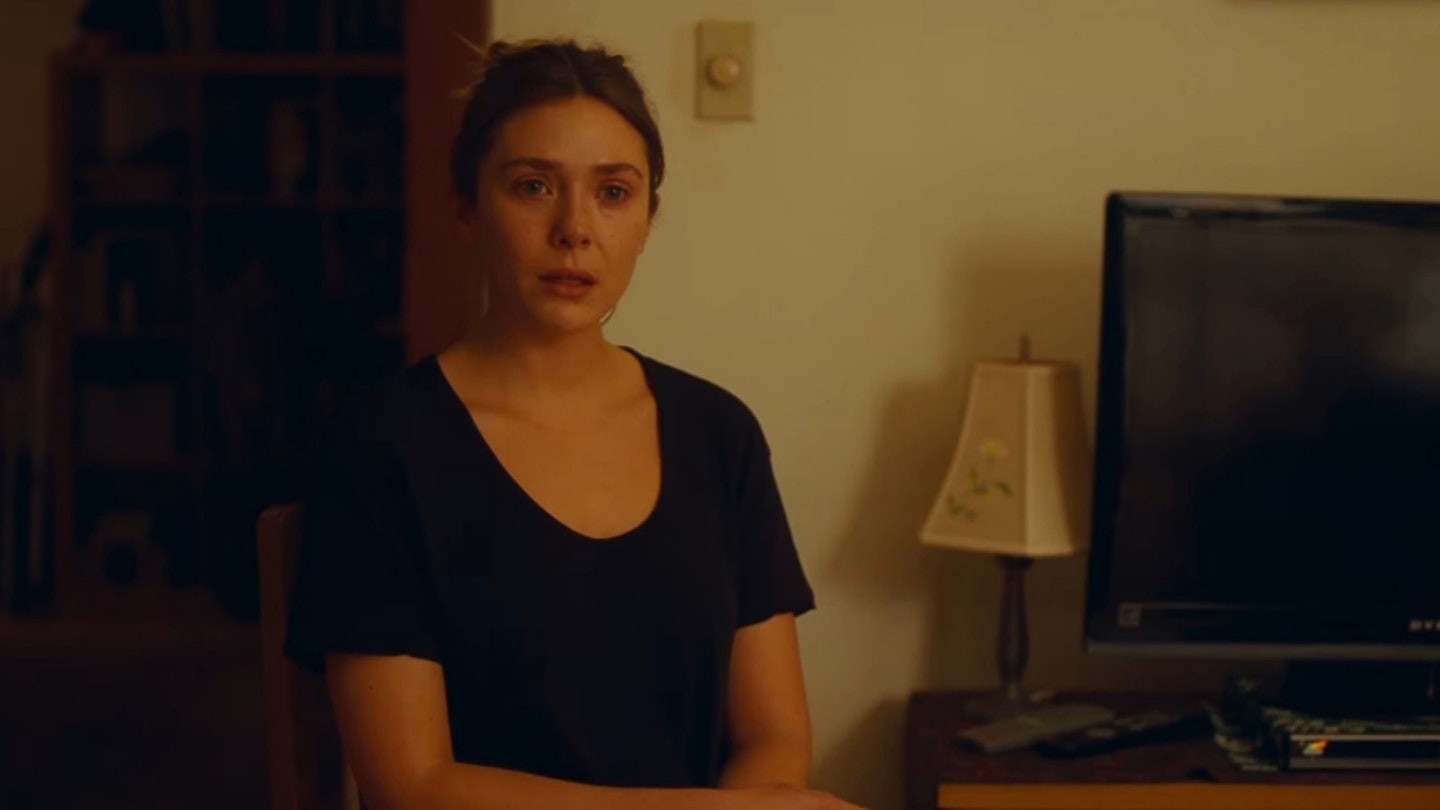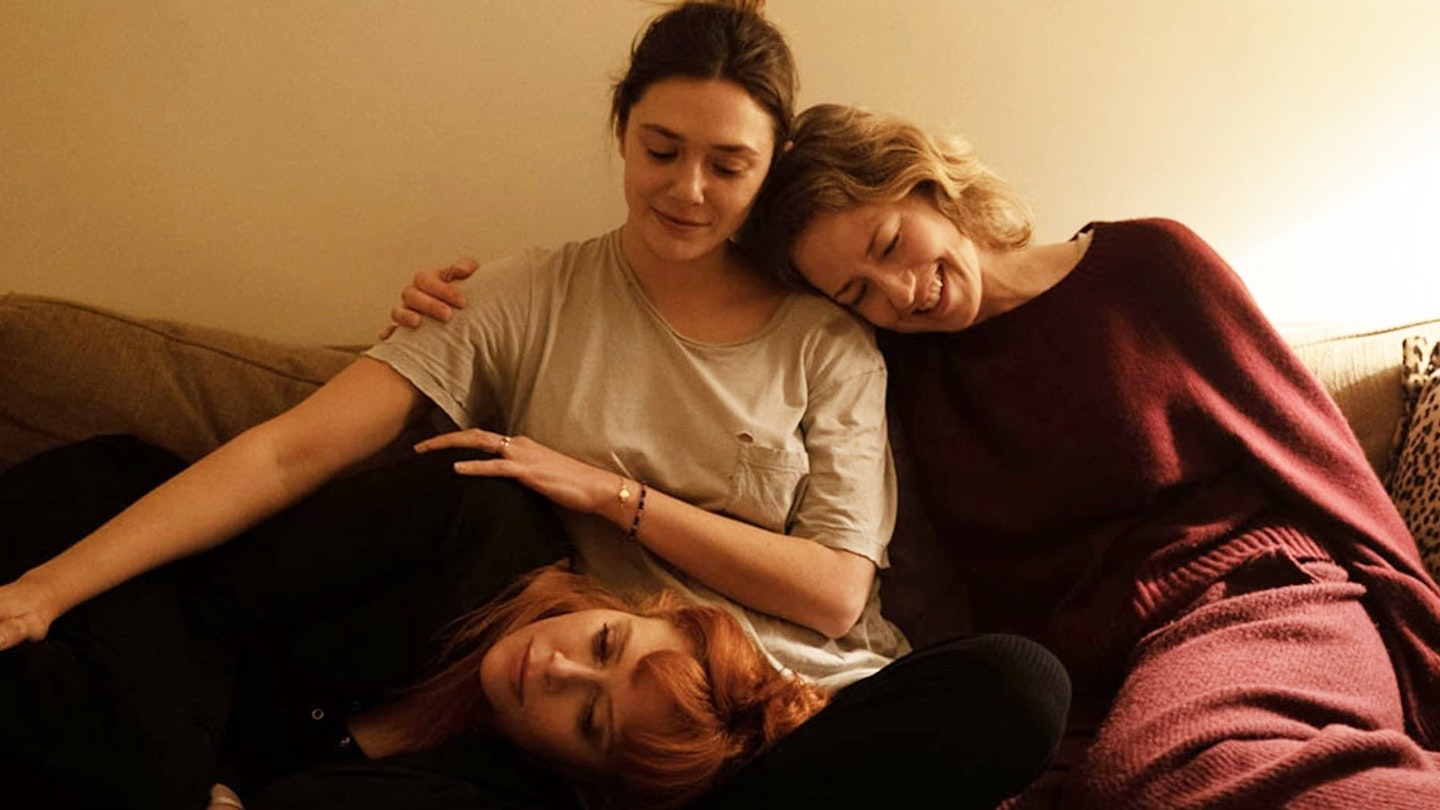Azazel Jacobs’ pared-down sibling showdown begins with a static shot of Carrie Coon, chic in a dark rollneck sweater, speaking levelly and lengthily to some patient recipient off-screen. It’s an opening monologue that establishes His Three Daughters as a film awash with Acting, the kind with a capital ‘A’. It feels as if it has stridden directly from the stage onto the screen.

What starts as a somewhat jarring note, however, soon settles into a captivating rhythm. Coon plays forthright Katie, mother to an uncooperative teenager and drinker of generous pourings of wine, whose qualms about her pot-smoking sister Rachel (Natasha Lyonne) manifest as passive-aggressive paper-cut takedowns. Hovering tentatively between the pair is timid former Deadhead Christina (Elizabeth Olsen), a constant look of concern seizing her face.
By its final chapter, the actors are firing on all cylinders.
It’s a feat in casting. Lyonne sheds the Elliott Gould-with-bangs persona that she fine-tuned in Russian Doll and Poker Face for a more subdued and internalised role. Her character is arguably the most complex, as Rachel’s initial isolation is revealed to hold a deeper, more tender meaning, and it's a refreshing change of pace for the actor. Meanwhile Olsen, free of the multiverse, brings lightness and comic relief with her yoga breathing and hippy-dippy musings.
The film seldom strays from the apartment, with the three women converging in doorways and at the dinner table while their dad (Jay O. Sanders) is on life support and largely obstructed from view. And yet Jacobs, who also wrote the film, manages to drip-feed details and developments solely through dialogue (a few overheard phone calls and conversations with neighbours break up the dynamic) without it ever making it feel like the film is lagging. The language at times takes you out of the film — Katie and Christina especially lack nuance when speaking to each other — but by its final chapter, the actors are firing on all cylinders, moving as an emotionally charged, almost unbearably vulnerable force that fills every corner of their modest setting.


